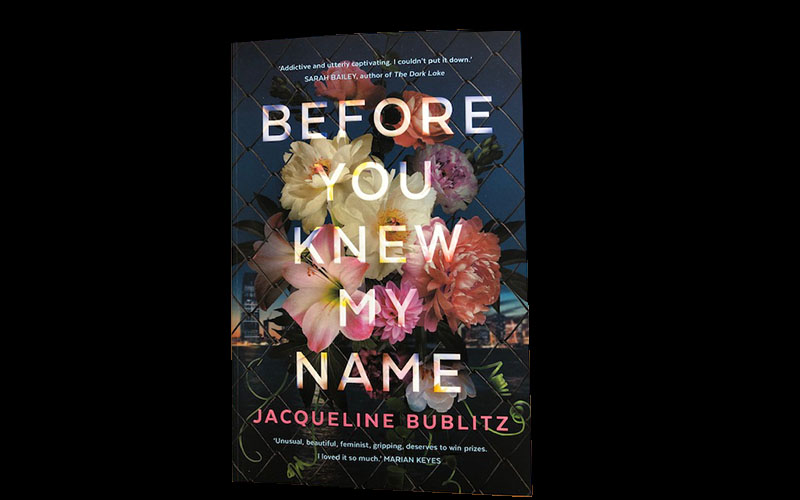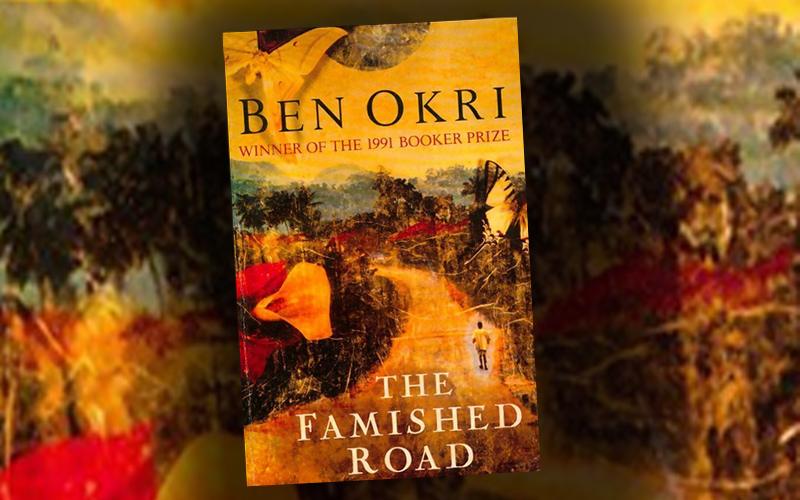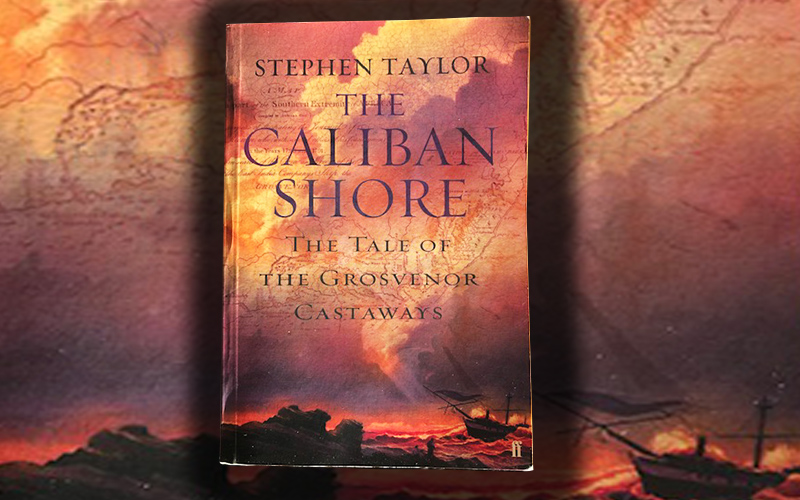Here are some books that I have recently read and engaged with enough to comment on. Other people may love them. They miss the cut of my recommended books because something is lacking: elegant writing, spirit, a character to love or simply they don’t add up. Or they may be just too weird for your regular group of bookies. Or too horrible. If you see a book you love here, please tell me what I missed.

Yes, it’s evocative and sharp and takes you right into the war zone. But what is new here? We are told about Russians raping women to death, a New Zealand soldier raping women ‘at least he had not killed them’, shooting raped women as a ‘blessing’ and lashings of dismembered limbs, soldiers blown to bits, blood and guts leaking out of a belly like live eels. And then the men go home severely damaged. The very specific atrocities described – presumably based on reality – must be recorded (lest we forget and repeat ourselves, though that theory’s not working out so well) but I ask, one again, is this the right format to remember our inhumanity ? If we are reading this story for more than entertainment (and God help us if we are not), what is it we are learning here?

It’ll probably win the Ockhams, no doubt be shortlisted for the Booker. Wild on imagination. Just too much like someone telling me about their dream for a very long time for me to think I could ever recommend this to anyone. I did try to make sense of it for a while – it’s the story of three criminal people who suddenly grow to be enormous giants and society can’t cope with them so sends them into space where they outgrow their space craft and need to find a new world where everything has soft edges. WTF? You may well ask.

Sorry Peter Carey! I enjoyed Oscar & Lucinda, The Kelly Gang, Illywhacker. I wanted to love this one, I really did. And it started so well with typical Carey character descriptions, like this one of the man our narrator loves (end each to her own): “He was neat. When I cried, he comforted me. He left talcum powder on the bathroom floor.” What a man, hey? And here’s a perfect character assassination: “My father-in-law was on the graveyard side of seventy, but he stepped into our yard clad in the usual cotton dustcoat, full of piss and vinegar.”
There are great observations throughout this book, but, alas, the plot is tedious. It’s dusty 1950s Australia – a horrible misogynistic place – and Irene Bobs and her neat little husband enter an extended car rally with navigator Willie Bachhuber, who occasionally takes over the story from Irene. Somewhere up north this blond man is recognised as having a touch of black, and the Aborigines claim him as a descendant. The whole plot gets inexplicable for quite a while, though there are often dashes of glorious feel-good prose: ”‘Alice is your mother’s sister, so she is your mother blackfellah way.’ If I were a horse I would have trusted that deep furry voice, the words all worn like river pebbles.“
We read this for book club and while some of the blokes thought the car rally stuff was OK, we all agreed it was way too long and convoluted. I kind of wish the publishers had suggested cutting this into two distinct stories, both with the magic Carey prose: one a hot car rally across Australia with a woman driver in the 1950s, and the other the story of a German man who discovers his unusual roots. There’s me, criticising Penguin again. Oh, the cheek!

Interesting book. I got the kindle version so read for a few days, not really getting into the characters and overwhelmed with detail before realising I was only a tiny way into this mammoth read of 720 tight pages. So I settled in for the long haul, began to concentrate on the personalities of the first three of the three New York men, decided I loved the book and bought copies for friends and family for Christmas. I got about half way through when I apologised and told them to exchange it without opening it. Something happier (ie. any other book, really).
The fourth man, Jude, who is gentle and likeable and adored by the other three, (beautifully described friendships which is why I though the book suitable as a gift) turns out to be the victim of horrific sexual abuse throughout his childhood which has left him compulsively slicing his arms with razors and full of self-loathing. I bailed on the book after checking the rest of the story line, which is a spiral of sadism, self-harm, suicides and death and why, you have to ask yourself, would anyone enjoy reading this?
Don’t give it to your friends and for God’s sake don’t offer it up at your book club.

This is an Australian saga sent in two times: in 1880 and in 1911. It misses out on my ‘recommended for book club list’ because it doesn’t quite add up. Several characters fight to be the story’s key and, quite honestly, I never worked out what the cartographer’s secret was, or which cartographer it was that held the secret. Letitia is the main narrator, who in 1911 goes to chase an inheritance from a great-aunt and learns that her aunt Evie hadn’t died in childhood but had gone missing while searching for a lost explorer called Leichhardt (an historic character lost in the outback), with whom her dad was fixated. Letitia investigates and a series of coincidences have her stumbling on what may have befallen her aunt (who might have been better finishing the story herself?) but the family stuff was all unnecessarily complicated and the wasn’t much historical detail. Enjoyed the stuff about the explorer, Leichhardt, though and enough colour to keep me reading.

“Tyler’s best book yet, which must make it pretty much near perfection.” Great cover quote but backfired as means I’ll never dive into the others. I was in the mood for a good chick-lit: intriguing characters with dilemmas, fast plot, a climax or twist or at least major turning points. But it was boring. Never quite understood where the narrator was coming from or what he wanted, no idea where I expected the story to go so couldn’t really be surprised by anything.
The hero is a young, handyman type bloke who looks after elderly people, though he’s meant to be an edgy bad-boy. He falls for a frumpy woman, then decide he fancies his edgier work-mate. There is a moral issue about money with a confused resolution. Didn’t add up to an engaging read for me.

OK, may well get slammed for this as so many friends recommended it and it’s a sound crime thriller. The structure of the book is clever, with the point of view that of a dead girl telling both her story and also the story of the girl who finds her body. But I don’t want to recommend another book about a vulnerable young woman who gets raped and murdered. Sits with Pomare’s book In the Clearing about child abuse. Smart writing, shocking topic. Let’s move on.
16 Sept. Further to this, I’ve just read Jean Sergent’s interesting review in the Spinoff with a very different take on the deliberate handling of the woman’s side of this story, and I kind of agree but still stand by my dislike of trauma for entertainment. See if you agree with Sergent here: Before You Knew My Name

Sound silly to say this is too unbelievable when it’s about time travel — I actually liked that bit—but a bit tired of clichéd kick-ass heroines. Send them all back to Tomb Raider for kicks with Angelia Jolie. Here’s a shy first year university student, and she happens to be a 7th dan (!!?) world champ katateka who beats up a whole line up of Russian thugs. Even though she hasn’t trained for a while ‘cos she’s busy. Karate is a life. Seventh dans are old and venerable. Oh, and she speaks fluent Russian, well enough to whisper to her flailing assailant:
“I’m sorry you’ve got wankers in charge! So have we! Let’s go downstairs and talk about Colonel Gagarin. I used to have a poster of Yuri and thought he was magnificent!”
The heavy blinked momentarily…
I’ll bet he did. What language school did she go to??
So all that’s a bit silly and makes the book more a young teen read.
OMG, just realised that Robert Webb is half of Mitchell & Webb who I love and now I feel so bad dissing his book.
So here are the things I did like about Come Again: The pace really picks up when she goes back in time as The Girl Form The Future to try to prevent her husband dying of a brain tumour. It all goes wrong. Of course twenty-something boys are twits, of course anything you do will change the future, of course your friends will think you are odd. Hang on, not sure about snogging the wrong bloke…
All that part is great and could have been developed into a fine, intelligent book. I just wish Webb hadn’t stuck in a whole irrelevant sub-plot about evil Russians and a hacked encrypted file. And the cringey karate…
Nope. Still can’t recommend it. But do heartily recommend That Mitchell & Webb Look for the funniest comedy on the screen.

Matt Haig is an extremely popular modern writer and I can see why. He writes about the idiosyncrasies of being human and what makes us tick. What is normal, what are other people’s lives like, what are we here for, what’s the point? And he covers these big, existentialist questions in a blithe, chatty way to disguise where he is taking you. I’ll be slammed for suggesting that he diminishes important ideas to the level of pop culture, but there we are. If you want to spark a deep conversation when you’re sitting with your mates on sofas and pouring out the chardonnay (and that’s a yes from me), this book might start you off.
SPOILERS FOLLOW (not because I want to spoil the story but because the book is not a light as it looks).
Here we have a miserable girl, Nora, who is so unhappy with her life she decides to end it. There is not one specific thing, just a general meh that she doesn’t amount to much and nothing worked out the way she planned. (A delicate subject and I wonder if Haig knows his potential audience and is qualified to write this story? Anyway, moving on…). Apparently, when you attempt suicide (another term which rings alarm bells) and are hanging between life and death (not sure how you hit that fine balance), you get to go to a fantastical library (not in real life, you don’t), where someone in your past who you have respected and trusted will offer you the chance to explore all the permutations of what you could have done with your life and you can choose which one you’d like to go on with.
Rock star, glaciologist, academic with an adorable husband and child, motivational speaker and Olympian, dog handler with a sweet but dim boyfriend who lets the dogs sleep on the bed. Anything you want. So our suicidal girl explores every possible thing she could have done with her life and … you guessed it.
There’s a lot of philosophy here, well pitched for non-philosophers. In one life Nora discusses Schrödinger’s cat being, like her, both alive and dead. (I assume she is in hospital but that’s all a bit hazy and there is no concern for the people watching her life support machines). God gets a look in, as does physics (not scarily): “If I was religious,” [this is said by another person also exploring other lives; watch out for them, there may be millions of us in all our parallel universes] “I’d say it was God. And as God is probably someone we can’t see or comprehend then He—or She—or whatever pronoun God is—becomes an image of someone good we have known all our lives. And if I wasn’t religious—which I’m not—I would think that the human brain can’t handle the complexity of an open quantum wave function and so it organises or translates this complexity into something it understands…”
So Haig has translated this complexity into a librarian offering books in a library. Little bit of mansplaining here?
We get to the crux near the end, though we’d worked it out way back. “She realised that she hadn’t tried to end her life because she was miserable, but because she had managed to convince herself there was no way out of her misery.” Again, I don’t offer this as a spoiler but a suggestion that this light look at suicide might not be appropriate for all readers. It has the slight tinge of a bloke saying to a young woman, “Snap out of it, love, could be worse.”
The end is simple and cosy and even has the suggestion that Nora might invite the handsome doctor out for a coffee. A man doesn’t always have to make the first move, right?

I don’t know why I feel so guilty about not liking The Famished Road. I’ve been out of step with public opinion before and usually I stick to my guns and send everyone to hell, but in this case I’m inclined to think perhaps there is something missing in me. Booker Prize winners are often experimental — I’ve said before the runners-up usually make better reading. This novel has brilliant narrative technique perhaps, but all those spirit people wandering around, the myths and dreams never coalesced into anything I could make sense of. It’s not Okri, it’s me. My dreamier friends loved it.

Stephen Taylor’s The Calaban Shore is the story of the wreck of the East Indiaman (and don’t you love the imperiousness that goes with the ship’s type?), the Grosvenor in 1782. She wrecked on the coast of Pondoland, East Africa and 123 survivors made it ashore. Many, including the women and children, were abandoned (nice work, captain), others wandered off and died. A handful made it through to Cape Town and back to England. The story is in three sections: an introduction to the character’s lives India; the voyage and the wreck; and the centuries of investigations afterwards tracing the ship’s booty and the strange sightings of white women and their descendants in what is now East Cape province of South Africa.
There’s masses of technical details and years of very thorough research. I haven’t included this in the Books I Love section because the slightly patronising writing style has dated — the handling of race/women/class feels inappropriate in 2020 and the book needs to be read with the attitudes of 2004 in mind (which is fine, that’s part of history, too). But also because, like other books I’ve reviewed that are heavy on the research (eg The Hell Ship), Stephen Taylor has linked gaps in the facts with choppy fiction and a medley of quotations from various sources so we’re left with a book not one thing nor the other.
Shipwreck enthusiasts — go for it.

They told me Mantel had sorted out the pronoun problem that killed Wolf Hall and Bring Up the Bodies. She hasn’t. I got to page seven, got lost trying to work out who was speaking seven times and thought: the book is 882 pages long. Not this time, Hilary.

Recommended by a good friend who knows I love a well-written yarn but obviously doesn’t know my absolute belief that every book need to be uplifting in some way. Even Cormac McCarthy’s The Road, which is the most miserable stretch of dismal apocalyptic reading, was more hopeful than this story.
Here we have the surprisingly articulate Romy Hall telling her life story. I say surprisingly because although she apparently did OK at school, in early teens she headed for a life of drugs and prostitution and abuse. If she was as clever and insightful as her character appears, maybe she would have had the smarts to see some of this shit coming. She fights back and ends up in jail with no hope of being reunited with her young son. Still, she tells a good yarn with lots of interesting characters, also tragically fallen and nothing much good happens to any of them. The future is bleak. End of story.

Once again, I fine myself applauding Martha Jane Kelly for her research and her passion and railing against a poorly edited book (can’t believe I just said that. Who am I to criticise Penguin? And yet, here I go.) This could have been a great read. It has all the elements: a fascinating period in history with the Bolsheviks being bolshy and the White Russians fleeing their palaces. A cliffhanger at every chapter end. There are interesting characters with some power to change their lives and a workable plot line. But there are easily fixed flaws that spoilt the read for me. Just me, perhaps, so don’t worry, Penguin. You’ve got a million other readers for this.
The story is of three young women. Two are friends: a New York socialite, her Russian friend who is a cousin of the Tsar, and her child’s nanny. War comes, the Russians are too slow to leave, there are the inevitable heads on spikes and the nanny steals the Russian’s child. The action moves to Paris where all three women regroup with their various crises, and the resolution ends up back in upstate New York.
So what’s wrong with it? The child is stolen. I’m a mother. They may be in the middle of a revolution but if your child is stolen there is nothing else in your life until you get your child back. But the woman’s not frantic. Her first thought is to pray her captor wont find the rucksack. Hang on (an editor should have said), what about the baby?
And there is this seedy relationship with the Russian nanny and her guardian. It’s sexually threatening and she’s kind of complicit in a detached way but ‘knows’ he can’t go too far. Why not, is he her brother or something? Turns out he is. Sorry, that’s a spoiler, but what difference does it make? Just as creepy either way and withholding this information doesn’t work. The girl is telling the story—we are in her head and hear her thoughts, but she teases us with this information. Nope. Editor, where are you?
Three women tell the story in first person, plus a fourth at the close. Often I returned to the chapter heading to remember who “I” was this time. The three very different characters all had very similar voices. It’s a hard trick to pull off and Kelly doesn’t manage it.

This latest John Boyne doesn’t make the cut of wonderful books (though I know many will disagree), because there is no character to like. Not one, in the entire book. It’s kind of clever, the way there are various people telling their stories about the one man to show how his psychopathic behaviour repeats until it forms a improbably nasty pattern. The opening narrator is weak and bleak and takes a whole chapter, with no indication that there is any relief to follow. The twist at the end of this (too long) chapter sets up the book as the opening narrator is cut away and passes on the baton. There follow more characters telling their stories about our man. Some of the other characters are marginally more interesting. Gore Vidal has a role which is plausible. Our man gives his narcissistic point of view.
But the big hiccough with this story is that there is no need for the baddie to be quite so bad. He’s a real cold-hearted monster, one of the worst, but with no real motive. We’re repeatedly reminded of his splendid looks and charm and his undeniable talent. He seems to need a co-worker. Not sure why he doesn’t just ask someone?
Feel a bit bad dissing this book as John Boyne ‘s The Boy in the Striped Pyjamas is a favourite of mine. But not this one. Too clever by half.

McEwan must be the most inconsistent writer in the English language. I love him and hate him in different books. Sometimes I love and hate him in the same book. There are breathtakingly wonderful passages in his novels (like the opening scene in Enduring Love with the balloon taking off trailing the boy)—passages that I can read over and over for the feeling they give me—but reading on, find them absolutely unfulfilled. The rest of the book has nothing to match. I keep waiting for him to give me another Atonement. Or On Chesil Beach. Poignant, classy writing, right in the heads of the characters, confused and misunderstood by themselves. Saturday I liked very much and will review later but it was McEwan playing with a narrative device, challenging himself to set an entire book within 24 hours. Like someone made him a bet. The Child in Time was horrible and I so wish I’d never read it (it haunted me every time I took a child to the supermarket), but it was brilliant. The Children Act is another deeply disturbing story where adults struggle with their power over children; again the book is brilliant. Is Nutshell brilliant? Or merely clever, another narrative device gone mad? Hey Ian, bet you can’t do an update on Hamlet with a foetus as the narrator and the womb as a kind of symbolic arras! Turns out he can. But why?

COMPLETELY agree with you regarding McEwan. I want to love him. I sort of do love him, or bits of him, as you say. Reading Enduring Love’s opening was one of the most amazing reading experiences of my life. I love how he explores depravity and extremes one minutes, then hones in on the private details inside people’s heads the next … But I also struggle, as you do, with how inconsistent his imagined worlds feel. I did like Nutshell but it also bothered me in places. The foetus narrator device felt like McEwan doing a clever writing exercise for his own enjoyment and it got in the way of the book I felt he wanted to write. I will probably always buy his stuff and relish the reading but, a bit like when I listen to experimental music, I have to be ready appreciate his work without it always being a comfortable or pleasing experience…
LikeLike
Entirely agree. Though I’m more forgiving of writers than musicians. Experimental music…nah. Come back when you’ve got a song sorted.
LikeLike